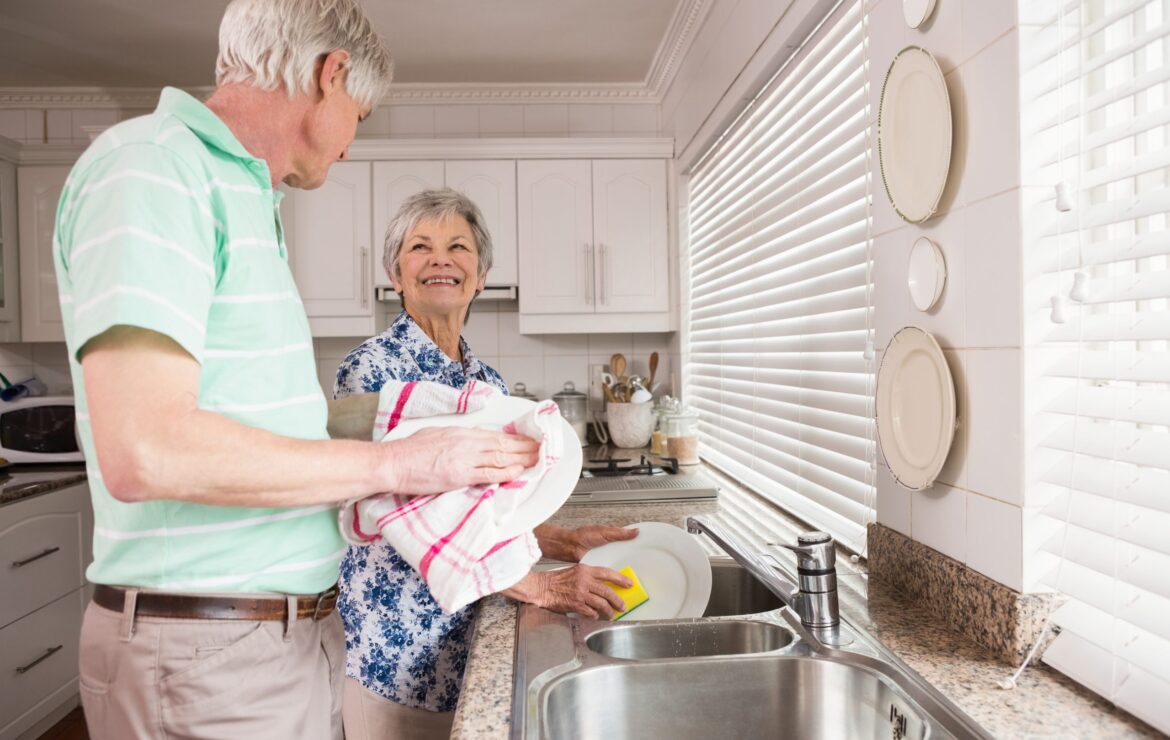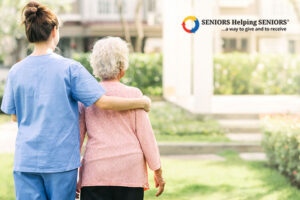Learn More about Our Peer-to-Peer Caregiving

Who better to know and respond to the needs of seniors than seniors themselves? Seniors Helping Seniors capitalizes on that concept, acknowledging that seniors are more open to care when the caregiver is a peer who can relate to them on a personal level. Seniors Helping Seniors is a family-owned business started in 2013 by Scripps Ranch resident Tricia Izadi, her mother, Sue Erskine (from Cardiff), and her aunt, Doris Dorey (from New Jersey). The three were inspired to create the organization because of Tricia’s grandfather, who was diagnosed with Alzheimer’s disease in his mid-70s. As the illness progressed, Tricia explains,
“We were fortunate to find two wonderful senior caregivers who enriched my grandfather’s life, providing companionship and allowing him to continue the activities he loved, including golf and walking. Our personal experience led us to start Seniors Helping Seniors as we saw firsthand the tremendous value that caring seniors can make in the lives of one another.”
The company employs about 80 seniors who are mostly retired and looking for an “encore career.” Many come from helping professions such as nursing, teaching and other human services, and most have experience in caregiving for friends and family. All care providers go through a rigorous screening process that includes interviews, reference checks, and a background check. After the pre-employment screening, caregivers receive ongoing training and are bonded by the company’s liability insurance carrier.
One of those clients is La Jolla resident Chris who’s worked with caregiver Debbie for five years. Chris says his age is “over 21” and Debbie is 70 years old. Debbie started in Chris’s household taking care of Chris’s wife, Gail, who has since passed away. She took the couple shopping for groceries and clothes, to doctors’ appointments and other chores.
“Gail would look forward to Debbie coming over here,” Chris recalls. “She would rather see Debbie come through that door than part of our family. They just established a really good relationship.” Chris asked Debbie to stay after Gail’s death, to become his caregiver in turn.
“When my wife passed away, Debbie was just invaluable for helping me with all the things that needed to be done. Debbie’s my caregiver.”
On the other hand, Debbie says she feels the same way. For her, the job is appealing because she can choose her own hours, make a little income and help people like Chris. She admits that when she was in her 40s, she had no idea what a senior wanted. Now it’s crystal clear.
Senior caregivers provide services in three different areas. Around the house, they do light housekeeping or meal preparation, organizing and consolidating, dressing, bathing, and grooming, as well as medication reminders and mobility assistance. Outside the home, they help seniors do errands, shopping or recreational activities. They also can help with vacation coverage, respite care, and simple companionship.
For seniors who need the care, these caregivers can be a lifeline to the outside world or just someone to sit with and talk to. Seniors select a caregiver whom they feel comfortable with, so they maintain a sense of control over their lives. For Tricia, she enjoys seeing those relationships develop.
“I like the concept of helping two groups of people: the caregivers who are looking to give back and do meaningful work in their retirement (and make a paycheck) and the clients who would like to live in their own homes for as long as possible but may need a little help to remain independent.”
And, she points out, the need will only grow as more and more baby boomers turn 65.






